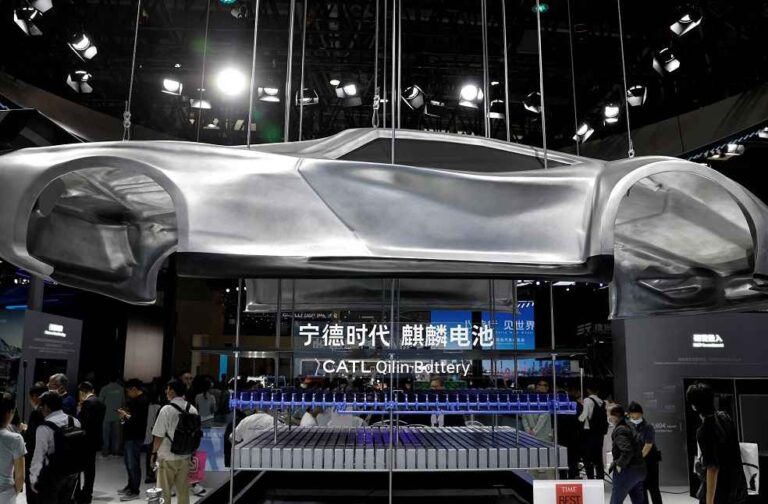At Beijing’s latest international auto exhibition, China unveiled a series of groundbreaking technologies that reassert its growing influence over the global automotive sector. Visitors witnessed auto innovation like batteries with an unprecedented 1000km range, the first-ever hydrogen-fueled vehicles with extended range, and pioneering neural network-based large models for planning and control. These developments captivated attendees and highlighted China’s accelerating ascendancy in automotive technology.
A Global Product Manager from Germany’s Casco Automotive Group, speaking with China Economic Net (CEN), emphasized the critical role of Chinese advancements in fostering international collaborations and propelling the auto industry forward. The event, themed ‘Driving to Smart Mobility,’ showcased 117 global premieres, 41 concept vehicles, and 278 New Energy Vehicles (NEVs), attracting nearly 500 companies from 13 countries to its auto parts zone.

NEVs dominated the exhibition, representing over 60% of the newly debuted cars, reflecting China’s decisive shift toward a sustainable economy. Notably, NEVs comprised more than half of the passenger vehicles sold in China during the first half of April, surpassing sales of traditional fuel vehicles for the first time.
Johan Annell, Partner and General Manager at ARC Group’s Beijing office, noted the global market’s increasing recognition of Chinese brands, which are rapidly expanding and shifting consumer preferences worldwide.
Forecasts by CMC Auto Import & Export indicate that NEVs will constitute over 40% of China’s vehicle exports by 2024, with overall auto exports expected to surge by 15%-20% to six million units. Annell pointed out significant opportunities for increased adoption in the US and European markets, as well as in emerging markets where some regions are bypassing traditional stages of technological adoption.

A London-based auto designer, working anonymously for a China-UK joint venture, told CEN that the prowess of Chinese brands is prompting European manufacturers to strive for higher quality at lower costs. He stressed the need for a global elevation in standards in response to the competitive pressure from Chinese innovations.
As China continues to export its technological breakthroughs and deepen international ties, the global automotive landscape is set for a substantial transformation, shaped by a commitment to sustainability, innovation, and robust global collaboration.
LATEST | Solaris Lands Major Deal to Deliver Hybrid, CNG Buses to Rome’s Fleet





